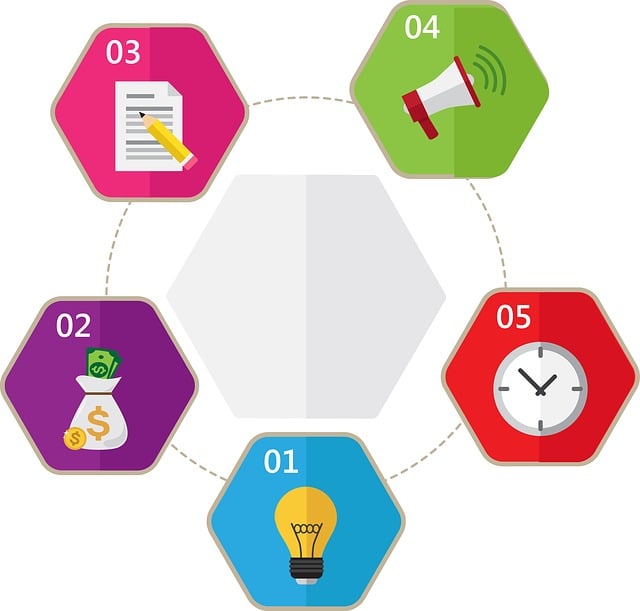As the school year starts, it’s time to open up the word processing program and get to work on a letter for your student’s teachers. Letters should be customized for the particular class, subject, grade, and student’s needs. Here’s a nice example from Trish: “You have our son, *** in your second period AP Lang class. I wanted to give you a heads up that he has an IEP with accommodations. He has been professionally diagnosed by licensed psychologists as intellectually gifted, with dyslexia and dysgraphia. Dyslexia is often referred to as an invisible disability, and ____ has in the past had either his intelligence or his disabilities underestimated, as they can camouflage each other. He is an extremely hard worker, tries hard to overcome […]
[PREMIUM] What is Dyslexia? – Fast Facts for Teachers
THE MOST COMMON LEARNING DIFFERENCE Dyslexia is the most common learning difference, seen in up to 15-20% of the population. Dyslexia tends to run in families, but it can vary a great deal from family member to family member. IT’S NOT JUST READING Reading challenges are a central feature of dyslexia, but dyslexia-related brain differences have been detected in children before they are reading age and with appropriate intervention, reading improves significantly. There are learning strengths also associated with dyslexia that are helpful to know for educational reasons as well as future careers. FAST FACTS FOR TEACHERS #1. Dyslexic students are smart. Dyslexic students have average or higher than average intelligence. Are they receiving adequate challenge and opportunity in their daily work? Could you be […]
Dyslexia and Firefighting [PREMIUM]
In some fire stations where members are outspoken about their dyslexia, an over-representation of dyslexia has been noted. Why is this? Firefighting is a intensely active profession where strengths of situational awareness, dynamic spatial problem solving, and teamwork all come together. Firefighting especially demands M-strengths (material reasoning), I-strengths (interconnected reasoning), and D-strengths (dynamic reasoning). In the United Kingdom, one Fire District conducted a Dyslexia Awareness program that included testing, workplace coaching, and assistive technology. They’ve identified over 70 individuals in their program so far. Dyslexic firefighters often don’t have much difficulty with the actual job of firefighting. Instead, they have trouble with timed test taking required for promotion or the paperwork and paper-based data analysis required for reporting. Here in the US, Frank Ricci is […]
Multimedia Learning Best for Dyslexics But How to Introduce Audio? [Premium]
“To optimize learning, it is more efficient to provide children with dyslexia with extra audio.” In a recent multimedia learning test of 11 year olds and typically-reading peers, dyslexic students were found to learn most efficiently if they were provided with text + audio or audio only, rather than text-only. How often is this happening over the course of every school day? To smoothly integrate audio in classroom learning and boost a child’s efficiency of learning preparation it’s necessary and audio should already be a friend. Summer is a great time to introduce audiobooks if your kids haven’t tried them before. 1. START WITH A FAMILIAR BOOK – Start with a familiar book or book series to smooth the entry of audiobooks. It’ll be much […]
SELF-ADVOCACY: Common Accommodations and Modifications
KNOW! One of the first steps in advocacy is knowing which accommodations and or modifications you need. ASK! Here's a nice list from the state of CT. There's a reason this article is filed under "Self-Advocacy". Students should be aware that they...
[PREMIUM] Resources for Auditory Processing and ELLS
Pronunciation errors are often a clue that the sounds for certain words aren’t being processed accurately. Middle sounds and certain blends may be especially challenging to hear. Students who don’t hear the sounds correctly are less likely to be accurately filing different sounds associated with words, leading to inaccurate reading aloud and problematic spelling. Many students who successfully get past the basic decoding stage, flounder in this middle stage, never quite making it to fluent reading or accurate spelling. Dyslexic adults who say that their spellcheck can’t find their misspellings often have auditory processing challenges that haven’t been recognized. English Language Learners have a harder time learning sounds that don’t occur or are different in their own language (language interference). Certain curricula such as Lindamood […]
Sight Words / Tricky Words [Premium]
Sight words are words that must be memorized by sight, rather than being sounded out phonetically. Sight words are important to learn because once children are able to read the most common 100 sight words, they can read up to 50% of most children’s literature. Mastery of the top 300 words, gives students access to 75% of what is printed in most children’s literature. It’s especially important for dyslexic students to learn their sight words with multisensory strategies because sight words account for many of the most commonly misspelled words in writing. You may hear sight words referred to by many names, such as Dolch words, Fry words, high frequency, or even Orton-Gillingham red words. The most important thing to know is that these words […]
Could it be GRAMMAR? [Premium]
Hidden grammar difficulties can be common reason why older students with dyslexia hit a plateau with reading, writing, and even testing. The problem is so subtle at times that many difficulties may be missed for years if not for their entire academic careers. One of the reasons that the problem is difficult to detect is that even many standardized tests that are commonly used for assessing the possibility of dyslexia either don’t test for it or they don’t pinpoint the problems that cause the student to struggle. In the early grades, students who have “overcome dyslexia” by the mastery of decoding, may find they hit a plateau as sentences become longer and more complex. In the middle and high school years, unrecognized grammar problems may […]
[PREMIUM] Dyslexia and Job Interviews
Here are some quick tips to consider if you’re on the job hunting trail. Job interviews can be pretty stressful, so prepare (actually, over-prepare) to help the process go as smoothly as possible. 1. Research the Company or Business – Do your homework: use official channels (the company’s website) as well as unofficial channels (former employees, LinkedIn, Glassdoor) to learn as much as possible about the company you want to work for. Does the company seem to value neurodiversity? Do you know of any dyslexic employees or executives there? 2. Prepare for the Interview – If you are new to the workforce and interviewing process, use Google or another search platform to check out sample questions and answers. If your interviewer asks complicated or multi-part […]
Mind Mapping for Dyslexic Teens
"For many years, I have been homeschooling with my (stealth) dyslexic son, who is now 17. Because of his profile and interests, very few standard approaches have worked, including things like Orton-Gillingham, and speech to text. We have had to make a lot up, and be...
USING STRENGTHS TO FOSTER RESILIENCE
Recently we discovered a wonderful table in an article by Angela Shaw in Exceptional Parent. Angela began her article by talking about the daily challenges that dyslexic students face because of the potential for repeated failure in the classroom. One way to battle...
Dyslexia-friendly Technology [Premium]
Because technology IS such a game changer for everyone – especially dyslexics of all ages – it’s important to be aware of the pros and cons, possibilities as well as limits, and ways in which apps, assistive technology, and gadgets can make school and workplaces better fits for dyslexics of all ages. USE IT If the biggest hurdle to technology is knowing that it exists, the second biggest has to be customizing the software so that it works well for you, and then allowing enough time for mastery. Access to technology is one of the best ways for dyslexic people to level the playing field at school and in the workplace, and fully express their knowledge and expertise. CAUTIONS The American Academy of Pediatrics has […]

![[PREMIUM] Letter for Teachers](https://www.dyslexicadvantage.org/wp-content/uploads/2018/12/Screen-Shot-2019-08-30-at-8.57.12-AM.jpg)
![[PREMIUM] What is Dyslexia? – Fast Facts for Teachers](https://www.dyslexicadvantage.org/wp-content/uploads/2018/11/Screen-Shot-2019-08-30-at-9.15.35-AM.jpg)
![Dyslexia and Firefighting [PREMIUM]](https://www.dyslexicadvantage.org/wp-content/uploads/2018/11/Screen-Shot-2019-08-30-at-9.19.32-AM.jpg)
![Multimedia Learning Best for Dyslexics But How to Introduce Audio? [Premium]](https://www.dyslexicadvantage.org/wp-content/uploads/2018/10/multimedia.jpg)

![[PREMIUM] Resources for Auditory Processing and ELLS](https://www.dyslexicadvantage.org/wp-content/uploads/2018/10/Screen-Shot-2019-08-30-at-8.30.37-AM.jpg)
![Sight Words / Tricky Words [Premium]](https://www.dyslexicadvantage.org/wp-content/uploads/2018/10/Screen-Shot-2019-08-30-at-8.46.26-AM.jpg)
![Could it be GRAMMAR? [Premium]](https://www.dyslexicadvantage.org/wp-content/uploads/2018/09/Screen-Shot-2019-08-30-at-8.38.10-AM.jpg)
![[PREMIUM] Dyslexia and Job Interviews](https://www.dyslexicadvantage.org/wp-content/uploads/2018/09/Screen-Shot-2019-08-30-at-8.35.08-AM.jpg)


![Dyslexia-friendly Technology [Premium]](https://www.dyslexicadvantage.org/wp-content/uploads/2018/09/Screen-Shot-2019-08-30-at-10.34.14-AM.jpg)













